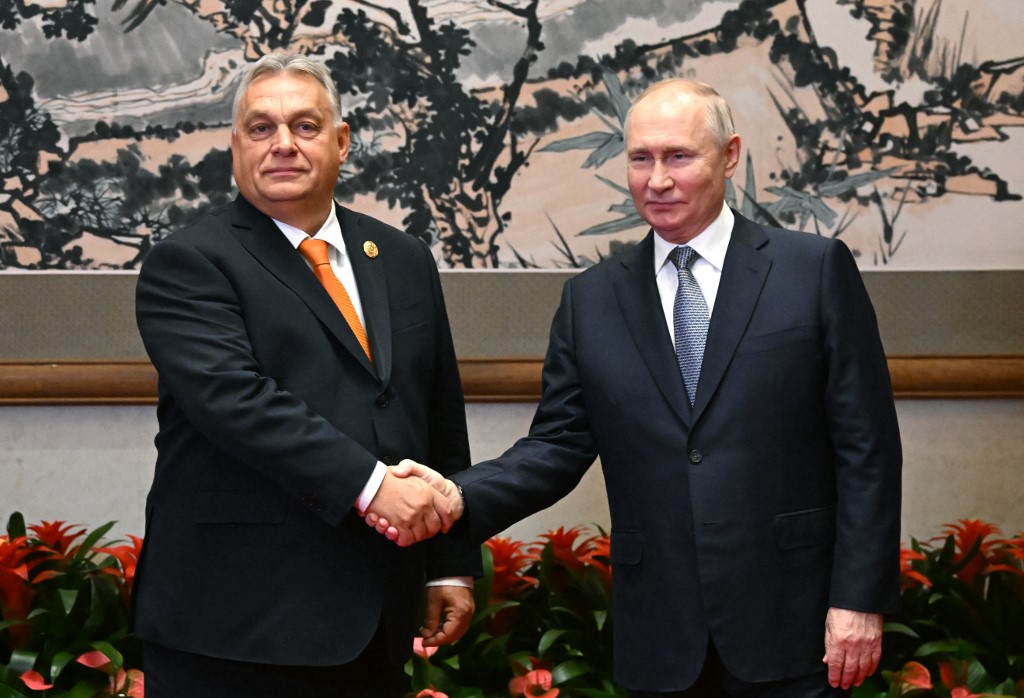 Have the article read by OpenAI (Beta). Please note that AI translations may take some time to process.
Have the article read by OpenAI (Beta). Please note that AI translations may take some time to process.Slovenia extends border controls with Croatia and Hungary until 19 November
Ljubljana (STA) – On Friday, the Slovenian government extended controls at the borders with Croatia and Hungary by 20 days, until 19 November. It explained that, as before, surveillance would be targeted and focused on preventing terrorism, extremism and cross-border crime.
Slovenia introduced border controls on 21 October, following Italy’s decision to control its border with Slovenia. Both countries cited threats to public order and internal security in the EU, the situation in the Middle East and Ukraine as well as the prevention of terrorism as reasons for their decision to temporarily reintroduce controls.
On Thursday in Brussels, Slovenian Prime Minister Robert Golob said he expected Italy would lift border controls by Christmas, so that Slovenia could do the same at the borders with Croatia and Hungary. While Rome has already indicated that controls are likely to continue throughout the winter, there has been no official confirmation from the Italian government on the possible extension of border controls.
The re-establishment of surveillance and how to minimise its impact on those citizens of the three countries who cross the border on a daily basis will be discussed on 2 November in Trieste by the interior ministers of Slovenia, Italy and Croatia. On 14 November, Golob will visit his Italian counterpart Giorgia Meloni, with whom he will also discuss border surveillance.
In an interview published on Friday, Croatian Prime Minister Andrej Plenković told France24 television that border controls within the Schengen area did not prevent terrorism and the rise of extremism. He stressed that the solution was to protect the EU’s external borders and to align the visa policies of Bosnia and Herzegovina and Serbia with those of Brussels. He also announced a meeting with Meloni and Golob. (27 and 29 October).
Middle East – Schallenberg to Borrell: Stick to summit declaration
Brussels (APA) – According to EU chief diplomat Josep Borrell, Israel is violating international law with its attacks in the fight against the Islamist Palestinian organisation Hamas. “Gaza is in complete blackout and isolation while heavy shelling continues,” Borrell wrote on X (formerly Twitter) on Saturday. Austria’s Foreign Minister Alexander Schallenberg then reminded Borrell of the EU summit decision.
“On the situation in the Middle East, it is imperative to stick to the positions clearly expressed by Heads of States and Governments” within the European Council,” Schallenberg wrote on X (Twitter) on Saturday evening, addressing Borrell.
EU leaders had agreed at the summit this week to condemn Hamas for its brutal and indiscriminate terrorist attacks in Israel, as well as to Israel’s right to defend itself in accordance with international law. It also called for “humanitarian corridors and pauses” for humanitarian needs in Gaza.
Borrell stressed that the UN Relief and Works Agency for Palestine Refugees (UNWRA) warned of the desperate situation of the people in Gaza, who were without electricity, food and water. “Far too many civilians, including children, have been killed. This is against International Humanitarian Law.” A pause in the fighting was urgently needed to allow humanitarian access, Borrell further wrote. “We condemn all attacks against civilians, including continuing indiscriminate rocket attacks against Israel, and we ask for the immediate and unconditional release of all hostages.” (28 October)

Orban-Putin meeting: Macron does not want it to “weaken” the EU
Brussels (AFP) – French President Emmanuel Macron said on Friday that he had no intention of “judging” the meeting between Hungarian Prime Minister Viktor Orbán and Russian President Vladimir Putin, but stressed that it should not “weaken” the European Union in its support for Ukraine.
“We don’t have to absolutely prohobit a head of state or government from seeing this or that other leader,” he said at the end of a European summit in Brussels. “That does not shock me,” he added, referring to the meeting in China in mid-October between Orbán and Putin, who has become a pariah for the West since the Russian invasion of Ukraine.
“What I ask…. is that, in the situation we are in vis-a-vis Russia, we do not use these bilateral contacts to negotiate things… which would weaken the unity that is ours,” Macron added.
On his arrival in Brussels on Thursday, the Hungarian Prime Minister made no secret of the fact that he had wanted to have this meeting. (27 October)
Germany supports Albania in the water sector
Tirana (ATA) – The Albanian deputy prime minister and minister of infrastructure and energy, Belinda Balluku, and the German ambassador in Tirana, Karl Bergner, signed a 50-million-euro agreement focusing on the improvement of drinking water supply systems as well as waste water disposal and treatment in several municipalities in Albania.
Balluku said that the agreement will contribute to the improvement of the drinking water supply system and waste water treatment with special focus on the tourist areas.
The Performance and Investment Programme in the Water Sector is an initiative of the Albanian Government, supported by the German Government through KfW, the European Union and the Swiss Government. It aims to improve water supply utilities at the local level by strengthening capacities in line with best practices and in alignment with European standards.
The German development cooperation with Albania began in 1988 and since then the German government has committed more than one billion euros to development projects. (30 October)
This is a compilation of the European coverage of enr news agencies. It is published Tuesdays and Fridays. The content is an editorial selection based on news by the respective agency.
